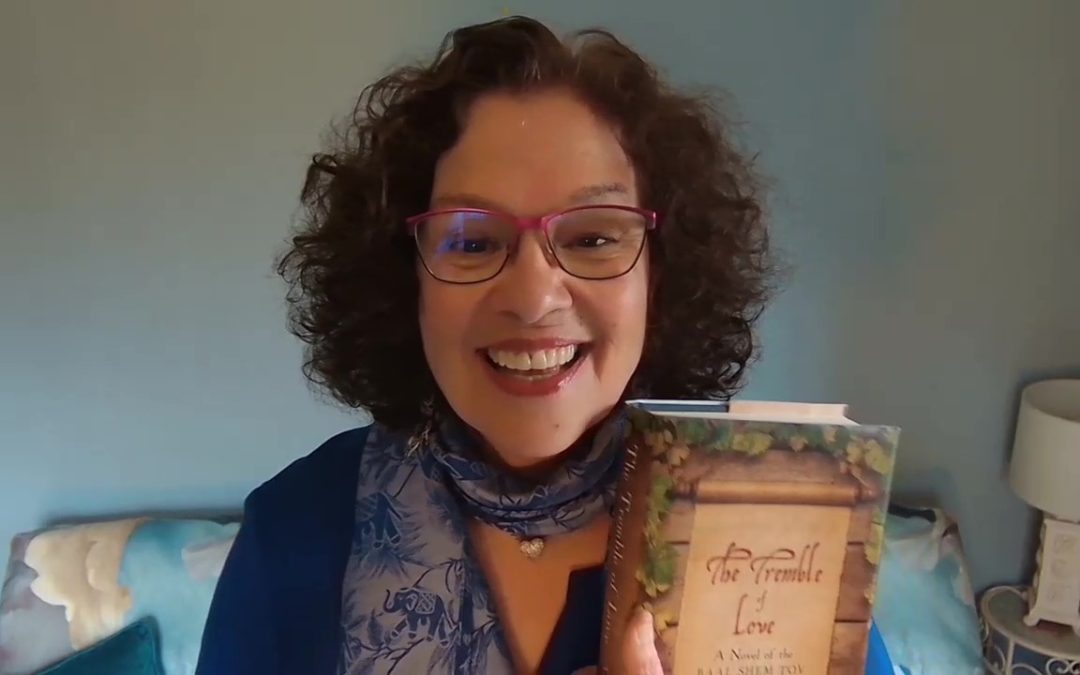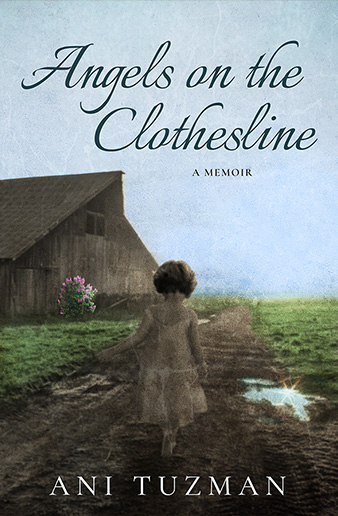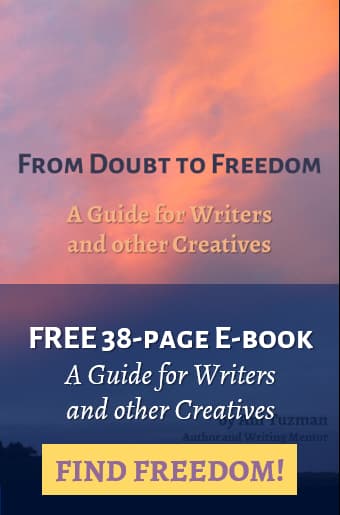Set in the 1700s in what is now western Ukraine, The Tremble of Love, A Novel of the Baal Shem Tov has been described as a meditation on the indomitable power of Love.
Among the novel’s timeless themes is the transformative presence and wisdom of women. This week’s passages feature the passionate hunger of daughters for study.
I am grateful for the opportunity to read to you again. It is my intention that our meeting at this well of Love will also feed our world’s thirst for peace.
This is my fourth reading. Each stands alone. You can find links to the previous short readings below or simply go to HARVESTING LOVE to find the previous posts.
In this “installment,” I read two brief excerpts. Both passages highlight the passionate hunger of girls to study in the face of their exclusion from formal education. Rifka, who is nine in the first scene, is passionate about learning, as is her Tanta Rifka.
In the second scene, seven-year-old Zofia is enthralled by the letters of the alphabet as Yisroel introduces them. So is her mother.
Below the video and audio recordings, you can find the full text of the passages read in the video.
Audio only:
The First Passage:
Rifka, nine in this scene, is one of the novel’s main characters. The wisdom and power of girls and women —and their education—are central themes in the book. Tanta is the Yiddish word for aunt. In this piece, you will also hear mention of the Kahal: the governing body responsible for administering religious, legal, and communal affairs of the Jews.
RIFKA COULD NOT see Dovid from where she sat in the women’s section between his mother Gittel and her tanta Leya. Rifka was very pleased with the small triangle of lace on her head that she had stitched mostly by herself under Gittel’s guidance.
But Rifka stopped thinking about stitching as soon as she heard Dovid begin to chant blessings on the Torah. She tried to imagine how he must feel. In three years, when Rifka would turn twelve, she would be considered a woman according to Jewish law, but there was no ceremony to mark this. Rifka wanted to be called to the Torah to read, too, and to be counted in the quorum needed for prayer. She’d wished this on the day of Gedaliah’s bar mitzvah ceremony, too, when he, like Dovid, passed through an invisible portal she was not allowed to enter.
Thank goodness Tanta Leya was not a stranger to such thoughts. Recently, Rifka’s aunt had approached the Kahal with a proposal that most Jewish citizens of Horodenka, even the women, found outrageous. Leya had proposed that a suitable instructor be found and that a cheyder, [a classroom] for girls be started.
Leya had given Rifka permission to accompany her to the Study House where the Kahal was meeting. Gittel had told Rifka how rare it was for a woman to attend a meeting of the community leaders, let alone address them. But Leya did not seem afraid at all, so Rifka tried not to be either. She was right next to her aunt when Leya stood up and cleared her throat loudly. The head of the Kahal, Reb Wolf, ignored her at first. When Leya started speaking, his face showed great annoyance. Rifka could remember almost every one of her tanta’s magical words that night.
“A daughter’s hunger is as important to feed as a son’s.” Leya had raised her voice so that it could not be ignored.
There were whispers, outcries, and even laughter until Reb Wolf—as if Tanta Leya’s request were a mere piece of dust—swept it away with his declaration. “Much more urgent matters than this are facing the Jewish community in Horodenka.” None of the other Kahal members protested his gesture. Rifka wished she were older. She would have stood up beside her aunt and insisted loudly that her tanta was right, even if they ignored her, too.
Dovid, saying the blessing upon completing his Torah portion, brought Rifka’s attention back to the present. Through the missing boards between the men’s and women’s sections, Rifka could see Dovid’s father Jacob stand and embrace his son. Rifka looked up to see Gittel’s eyes filling with tears.
Rifka did not really want to trade places with Gedaliah or Dovid—to be a boy instead of a girl. She wanted to keep being a girl and become a woman, strong like Leya and Gittel. But she wished she could also stand and read from the holy Torah scroll and study day and night in a Talmudic Academy when she was older. There were many such academies for boys, but not a single yeshiva anywhere for serious girls. There was not even a classroom for young girls, to prepare them, and Tanta Leya had not been able to convince the Kahal to allow one.
The second passage:
Yisroel, who has left behind his childhood nickname of Srolik, is 16 now and a tutor in the home of the well-to-do Rabbi Meir, his wife Batya and their three children, Elias, 13, Naftali, 11, unable to walk and barely able to speak & seven-year-old, Zofia.
THEY STUDIED TOGETHER every day, even on the Sabbath. As Batya had hoped, she and Zofia were welcome to the feast, which was how it felt to learn with Yisroel.
When introduced to the alphabet, Zofia became instantly swept up in the adventures of the letters. The letters’ journeys made her laugh, worry, and celebrate—as when Yud, the smallest letter of all and shaped like a tiny flame, proved itself to be the most powerful because two Yuds side by side formed the never-to-be-pronounced name of God.
Batya reveled with her children in Yisroel’s stories about the essence and personality of each letter.
“Aleph, the esteemed head of the alphabet, is deeply silent. When other letters surround the aleph or when vowels are written below her only then will sound emerge from her vast silence.”
“Think,” he said, “how important each letter is. There is no other just like it. Even those that make the same sound cannot take each other’s place.”
“Long ago,” he explained, “these gracious letters agreed to gather two or three at a time to create what would become the roots of other words. Then, joined by other letters in a great variety of combinations, these roots formed longer words with an array of meanings. The letters standing together form the words we use to speak our feelings, to ask for help, and to express gratitude. Words serve the One who created them from an infinite silence; they carry the energy of that great silence.”
The morning Zofia had finally learned all the letters, she jumped to her feet and ran over to her brother Naftali. She proceeded to recite the alphabet slowly and deliberately, raising her brother’s arms up then bringing them down like two exclamation marks with the naming of each letter. Naftali’s limbs trembled with excitement, his face growing more and more animated until the grand finale of the final Sof.
“Sroel,” she said after only a moment of respite, “is it really true that these very same letters make Hebrew and Yiddish words?”
Yisroel nodded. “Zofia, Yiddish, the language we speak every day, is our mother tongue, while Hebrew is the language of formal prayer and Torah, also called The Holy Tongue. Over the years, countless Hebrew words have made their way into Yiddish. But each language has words of its own that are not shared.”
After a moment of pondering, Zofia winked at Naftali and addressed her tutor. “I know another tongue, Sroel,” she announced like it was a secret. “Do you wonder what it is?”
Yisroel nodded as did Batya and even Elias, head down, drawing pictures at the end of the table.
“It is Naftali’s tongue that he speaks with his hands!” she said triumphantly, bringing her cheek next to her brother’s, whose eyes shone.
__________________________________________________________________________
“The Tremble of Love presents a world where death, loss, tragedy, accident, and disease are never far away, but also where the human capacity to hold and heal are almost always nearer than imagined—because God, who is Love, is also astonishingly nearer than imagined.”
~Rabbi Nancy Flam, cofounder of the National Center for Jewish Healing, founding director of the Institute for Jewish Spirituality.
If you missed my previous three readings, you can find them here:
Listen to Preface and Author’s Note Read by Ani
Ani Reads Opening to Chapter One
The Power of Compassion
If you have not yet read The Tremble of Love, learn more here. You can find information about where to get hardcover, paperback, eBook or audiobook editions here
I shall be gifting readers, i.e., listeners, a short recording (video and audio) every other week. Please, if you are inspired by these recordings and by The Tremble of Love, A Novel of the Baal Shem Tov, share the word with friends and others who may be interested. And if you haven’t yet, do join the inner circle of readers to make sure to receive coming recordings and other love offerings.
And for those who have already read The Tremble of Love, A Novel of the Baal Shem Tov, or are rereading the novel now, please consider leaving a review on Amazon (even if you got the book elsewhere) and/or Goodreads. Reviews help the book reach more souls!
May we know and be the power of Love.
Ani
G'Mar Chatima Tova
I close with this customary greeting whose literal meaning is: "a good final sealing." I will add to that: May you know the love of which you are made. What better than to know this?
With gratitude,
Ani
Your comments make this blog a conversation!
I would love to hear from you.
To avoid spam all comments are moderated by Ani. So if you don’t see your comment show up, not to worry; your comment will be up within within 24-48 hours






Ani, it was lovely to hear you read again today. I find I love to read and follow along with you speaking at the same time.
How especially poignant and sad to be listening now, so near to the minds and hearts of many children who now are in danger. May they be safe and feel loved.
Thank you Ani
Oh Marcie, thank you so much for listening and for taking the time to comment.
I so appreciate you making the connection to the children in our global family whose lives are being so tragically disrupted at this time. AMEN to your heartfelt prayer that they be safe and feel loved. Reading your words brings tears of love to my eyes and heart. Our prayers matter. I know you know that.
These readings from The Tremble of Love, our prayers—in all these ways, we amplify Love.
Thank you, Marcie